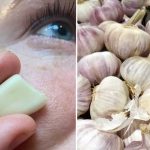Transitioning away from leather products can be a challenge due to their stylish appeal and functionality. While some brands are making sustainable alternatives fashionable, finding durable plant-based leathers remains a hurdle. Plant-based leathers show promise, but most are still in development. However, there are brands that have successfully introduced plant-based leather products into the market.
Reasons to Switch from Leather
Aside from ethical concerns related to animal agriculture, leather production has a significant environmental impact. Most leather comes from cattle, which contribute to deforestation and carbon emissions. Tanning, the process of turning animal hides into leather, involves toxic chemicals like chromium that harm both people and the environment. This industry generates massive amounts of wastewater that pollute communities in leather-producing countries.
Plant-Based Alternatives
While many vegan leathers are made from plastics, the ideal alternative would be both animal and petroleum-free. Currently, few plant-based leathers are available commercially, and their performance still lags behind traditional leather. However, companies are continually improving these products and developing new plant-based fabrics. For instance, recent advancements include self-dying vegan leather made from bacteria.

Top Plant-Based Leather Brands
Allégorie
Allégorie, a women-owned company, produces bags and wallets using leathers made from wasted fruit like apple peel and mango. They offer an environmentally friendly alternative to traditional leather products.
Nopal Leather
Nopal leather, made from Nopal cactus, offers a sturdy and sustainable material for various products, including belts, wallets, and even shoes. Collaborations with major brands highlight the versatility of this plant-based leather.
Mycoworks
Mycoworks uses fungal mycelium to create leather-like materials. Their innovative approach has been utilized by luxury brands for handbags and accessories, showcasing the potential of mushroom-based leathers.
Mylo
Bolt Threads’ Mylo is another mycelium-based leather that has been featured in high-end fashion products. The future looks promising for this sustainable material in the fashion industry.
Appleskin
Appleskin, while not entirely plant-based, offers a step in the right direction with its eco-friendly production process. Brands like Veerah and Marhen J. use this material in their products, contributing to a more sustainable fashion industry.
As researchers and designers continue to innovate, sustainable vegan leathers are on the horizon. When shopping for leather goods, consider supporting brands that offer plant-based alternatives. Together, we can drive the demand for eco-friendly and cruelty-free leather options.
Editor’s Note: This article was originally published in October 2022 and updated in September 2024.






